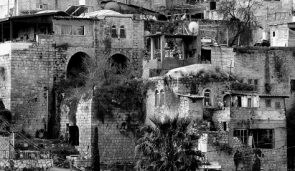UPDATES
Palestinian-Israeli relationship: the good, the not-always-so-bad and the ever-ugly
Jan 25, 2012 | Daniel Meyerowitz-Katz

Two news stories emerged today, both reporting positive steps forward in the relationship between Israelis and Palestinians. The first of these concerns an online conference being held by a group called YaLa-Young Leaders, designed to bring people together from both sides and have a productive conversation about the conflict, hoping to form some genuine reconciliation efforts.
As Kel Si Loos reported in the Miami Herald, the group has been attracting a large number of members from the Middle East and is propogating a very positive message:
A Palestinian organizing volunteer, Mohammad AlQadi, speaking in an online chat session with a reporter, said of the group, “We believe in peace and being together. We believe in a two-state solution” – meaning an independent Palestinian state alongside Israel – “and respect to all. We are human.”
YaLa volunteer Tom Dolev of Tel Aviv said in an online chat with a reporter that he hopes the conference creates “fruitful connections between members, increases member base and … implements projects for the economic well-being of the young generation of the region.”
He added that what YaLa calls the Peace and Economic Cooperation Conference will be a chance “to forward our agenda for the future to world leaders.”
Young Israelis and Palestinians created YaLa last year as a Facebook group. They use this and other social network sites to message one another and share ideas, photos and videos in the hopes of building a greater understanding between the groups.
In just eight months, the YaLa group has grown to more than 40,000 members, mainly from the Middle East.
In a more tangible development in Israel itself, Esther Zandberg has reported in Haaretz that the Israel Association of United Architects has just appointed its first ever Arab member of its national board. Abed Badran expressed regret to Zandberg over the recent history of architecture amongst Palestinians, however he is optimistic for the future and his appointment could well herald an increased profile for Arab architects in Israel.
Israeli-Arab architects went through an opposite process to the experience of their Jewish colleagues. Whereas Jewish designers prospered in the country’s early decades, the Israeli Arab architects were squeezed onto the sidelines and “lost their self-confidence,” as Badran puts it. The majority of construction in the Arab community was for years designed and carried out by engineers or people on-site, “and I would like the association to know that the current generation of architects, which emerged after the Land Day of 1976, is already a different generation. A generation of people with tremendous professional and personal confidence who see themselves as equal competitors to Jewish architects. Many graduated from architecture school with honors, and they are educated and ideological and conscious of their responsibility and of the fact that architecture is a dangerous profession that can destroy society, but also build it.”
As Zandberg notes, Badran’s appointment is the product of a new outreach mentality being driven by the IAUA’s new leadership:
Badran’s appointment is a watershed moment for Israel’s architectural establishment. The bold move is a first step in realizing the dream of the association’s new chairman, Baruch Baruch, who on taking up his post a year ago set his sights on promoting “the representation of all the groups that work in this field.”
To date, Baruch wrote in his mission statement, the association does not represent “communities that constitute a significant portion of the planning population,” and expressed his faith that including them would stir development of the public discourse within the association and outside of it.
The unfortunate flipside to the progress being made by people like Badran and Baruch was apparent late last week, when Ahmed Tibi, an Arab member of the Israeli Knesset, openly glorified terrorism during a ceremony on “Martyr’s Day” in the West Bank city of Ramallah.
“The shahid is honored throughout the history of nations. He is the one who blazed the trail for us. He paved the path to liberty with his blood,” Knesset Member Ahmad Tibi said last week.
Speaking in Ramallah during an event organized by the Palestinian Authority to mark “Shahid (Martyr) Day,” the Arab-Israeli lawmaker said the shahid “is the symbol of the homeland,” adding “our best wishes to the thousands of our nation’s shahids – also to those who operated abroad and those who operated in 1948.”
“They are the shahids who the occupier calls terrorists and we say are fighting for the homeland,” Tibi said during his speech.
Sadly, Tibi is typical of what passes for representation of Arab Israelis insofar as Israel’s political system is concerned. Along with other Arab MKs, such as Balad leader Haneen Zoabi, Tibi has fought tooth and nail to prevent Arab-Israelis from being a part of wider Israeli society. That said, initiatives like YaLa and the appointment of people like Badran to traditionally Jewish-dominated bodies are exactly what is needed in order to combat Tibi’s brand of negativity. Many signs point to the next generation of Arab leadership in Israel being far more positive than the current one, which would almost definitely improve the living standards and cohesion of the community as a whole.
Daniel Meyerowitz-Katz
Tags: Israel











